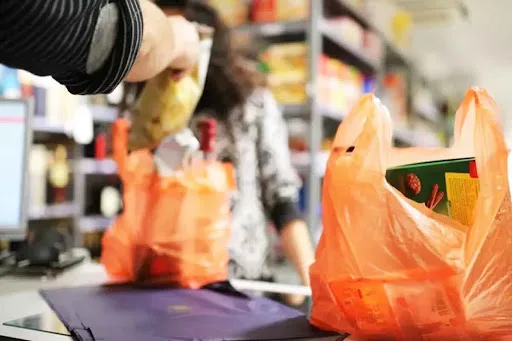The Growth of Recyclable Plastic Bag Malaysia Manufacturing
The rise of recyclable plastic bag malaysia manufacturing reflects a significant transformation within the country’s packaging industry. Driven by growing environmental concerns and stricter sustainability goals, local manufacturers have shifted toward producing bags that are reusable, eco-friendly, and compliant with international standards. This development is not only a response to global trends but also a strategic move to strengthen Malaysia’s competitive position in the regional and global markets.
As the demand for sustainable alternatives increases, recyclable plastic bags are replacing traditional single-use plastics in both retail and industrial settings. Malaysia has become a vital player in this industry by leveraging its strong manufacturing base, government support, and increasing consumer awareness. The progress highlights how environmental sustainability and industrial growth can align to create new opportunities.
Historical Background
Malaysia’s plastic manufacturing industry dates back to the 1970s, initially focusing on conventional plastics for packaging, household use, and export. During this period, single-use plastic bags were widely produced and consumed with little concern for their environmental impact. As the economy industrialized, plastic bag usage grew exponentially, fueling both domestic consumption and export potential.
By the late 1990s and early 2000s, rising global awareness of plastic pollution began to influence Malaysian manufacturing. International trade partners and local advocacy groups started pressing for alternatives, laying the groundwork for recyclable plastic bag production. Early efforts were experimental, but they set the stage for today’s thriving sector.
Government Policies
The Malaysian government has played a central role in encouraging the transition toward recyclable plastic bag production. Through policies like the “No Plastic Bag” campaigns, bans on free single-use bags, and incentives for green technologies, authorities have created a regulatory environment that promotes sustainability. Such measures ensure that manufacturers of recyclable plastic bag Malaysia adapt to more eco-friendly practices while remaining competitive.
Additionally, tax incentives, research grants, and funding for green technology adoption have been introduced to support manufacturers. State-level initiatives, such as charging consumers for single-use bags, also reinforce the move toward recyclable alternatives. These policies create both pressure and opportunity, shaping the market for eco-friendly products.
Consumer Awareness
Consumer demand has been one of the strongest forces behind the growth of recyclable plastic bag manufacturing in Malaysia. With increased education about the environmental hazards of traditional plastics, shoppers are more willing to adopt eco-friendly alternatives. Younger generations, in particular, are driving this change by choosing brands that prioritize sustainability.
Retail stores, supermarkets, and online marketplaces have also contributed to awareness by promoting recyclable bags as part of their corporate social responsibility. Campaigns highlighting the dangers of plastic pollution in oceans and landfills resonate with the public, making the shift toward recyclable bags a socially accepted practice.
Manufacturing Innovations
Technological advancements have significantly enhanced the efficiency and quality of recyclable plastic bag production. Malaysian manufacturers now use biodegradable additives, advanced resin blends, and improved recycling techniques to create bags that are durable, reusable, and environmentally friendly. These innovations reduce production costs and improve the overall marketability of recyclable bags.
Automation and digital technologies have also streamlined the manufacturing process, ensuring consistent quality and faster output. Research into new raw materials, such as plant-based resins and advanced polymers, has further expanded product offerings. These innovations help plastic bag manufacturer malaysia remain competitive in the rapidly evolving global market for sustainable packaging.
Investment in Infrastructure
The growth of this industry would not be possible without significant investment in infrastructure. Recycling plants, waste collection systems, and advanced manufacturing facilities form the backbone of recyclable plastic bag production. Malaysia has made progress in upgrading its industrial zones to include eco-parks and facilities dedicated to sustainable production.
Private companies have also invested heavily in modern machinery and research centers. These improvements not only increase production capacity but also enhance the overall efficiency of recycling processes. Strong infrastructure ensures that recyclable plastic bag manufacturing remains scalable and capable of meeting both domestic and export demand.
Employment Opportunities
The shift toward recyclable plastic bags has generated new employment opportunities within the manufacturing sector. From research and development to production and distribution, thousands of jobs have been created. These positions range from skilled technical roles in recycling facilities to marketing and sales in the growing green economy.
Moreover, the emphasis on sustainability has opened up training and education programs to develop a skilled workforce. Universities and vocational schools are offering specialized courses in polymer science, green manufacturing, and waste management. These efforts ensure a steady supply of qualified workers to support the expanding industry.
Export Potential
Malaysia’s position as a global manufacturing hub offers strong export opportunities for recyclable plastic bag malaysia. With increasing demand from Europe, North America, and Asia-Pacific markets, Malaysian producers are well-positioned to meet international requirements. Compliance with global environmental standards further enhances the country’s credibility as a reliable exporter.
Exporting recyclable bags not only boosts revenue but also strengthens Malaysia’s reputation as a leader in sustainable manufacturing. The sector’s ability to adapt to stringent global standards ensures long-term growth and competitiveness. This potential aligns with the government’s broader vision of diversifying exports and promoting green technology abroad.
Collaboration with Retailers
Partnerships with retailers have been instrumental in driving the success of recyclable plastic bag manufacturing. Supermarkets, convenience stores, and e-commerce platforms now collaborate with manufacturers to design and distribute branded recyclable bags. These partnerships create direct access to consumers and help normalize the use of eco-friendly alternatives.
Retailers also act as advocates for sustainability by implementing policies that encourage customers to purchase or reuse recyclable bags. Some stores provide discounts or loyalty points for shoppers who bring their own bags, further promoting behavioral change. This collaboration ensures a steady demand for recyclable bags and supports the growth of the sector.
Public Perception
Public perception has shifted significantly in recent years, with recyclable plastic bags now viewed as a responsible and practical alternative. The idea of sustainability has moved from being a niche concern to a mainstream expectation. This cultural shift encourages businesses and policymakers to accelerate their adoption of eco-friendly practices.
However, some skepticism remains regarding the true environmental impact of recyclable plastics compared to other alternatives like cloth or paper bags. Continuous education and transparency about the benefits of recyclable bags are essential to maintaining public trust. Addressing these concerns helps strengthen long-term acceptance of the industry.
Future Trends
Looking ahead, recyclable plastic bag manufacturing in Malaysia is set to grow further through continued innovation and global integration. Trends such as plant-based plastics, advanced recycling technologies, and circular economy models will shape the industry’s direction. Manufacturers are increasingly focused on achieving carbon-neutral production, aligning with international sustainability goals.
Digitalization, artificial intelligence, and automation will also play key roles in boosting efficiency and reducing waste. As consumers and governments worldwide continue to prioritize sustainability, recyclable plastic bag Malaysia is well-positioned to expand and evolve. This growth will contribute not only to economic development but also to environmental protection.
Leading Manufacturing Enterprise
Enrich Package (Malaysia) Sdn. Bhd, stands out as a leading enterprise in the recyclable plastic bag manufacturing sector. With years of expertise in packaging solutions, the company has pioneered eco-friendly innovations that align with Malaysia’s sustainability goals. Its recognition through prestigious awards highlights its commitment to quality, innovation, and environmental responsibility.
As a trusted name in the industry, Enrich Package continues to expand its operations both locally and internationally. By integrating advanced recycling technologies and maintaining strong collaborations with retailers, the company has positioned itself as a role model for other manufacturers. Its success demonstrates how local enterprises can lead the way in balancing profitability with sustainability.
Closing Remarks
The growth of recyclable plastic bag manufacturing in Malaysia represents a powerful combination of environmental responsibility and economic opportunity. Through government policies, consumer demand, and technological innovation, the industry has evolved into a vital contributor to sustainable development. The country’s manufacturers have embraced change, creating products that meet both local needs and global expectations.
As Malaysia continues to invest in infrastructure, foster innovation, and expand export markets, the recyclable plastic bag malaysia industry will remain a cornerstone of its green economy. The sector’s progress demonstrates how nations can balance industrial growth with ecological preservation, serving as a model for sustainable manufacturing worldwide.





